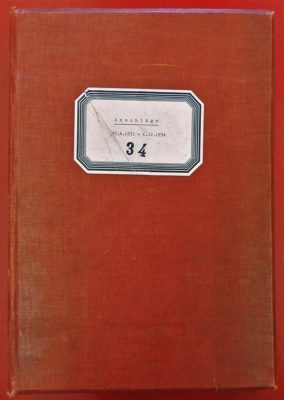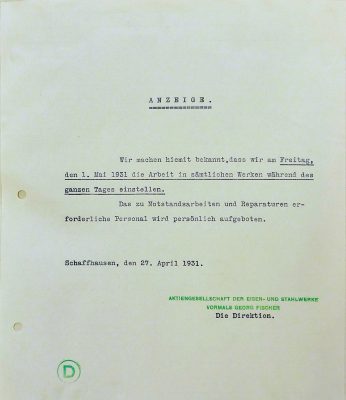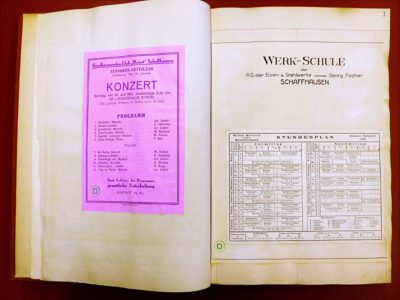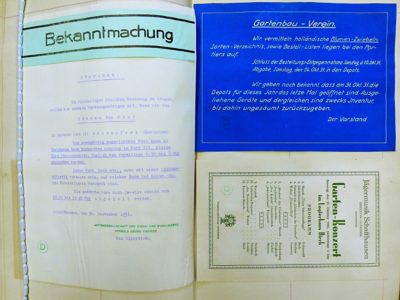Anschläge 1931-1934 (GFA 5/69)
published November 2019
The favorite book of Iris Staubesand
Iris Staubesand was Scholar in Residence at the Iron Library in July 2019. As a sociologist and granddaughter of a lathe operator who worked at GF from 1933 to 1971, she was particularly interested in the social responsibility of GF toward its employees and their families in the 1930s and 1940s. Her favorite "book" is a collection of factory notices - internal announcements for GF employees – a hodgepodge of information that brings to life the daily existence of the factory workers, their wives and their children.
&crop=(0,87,996,704))



